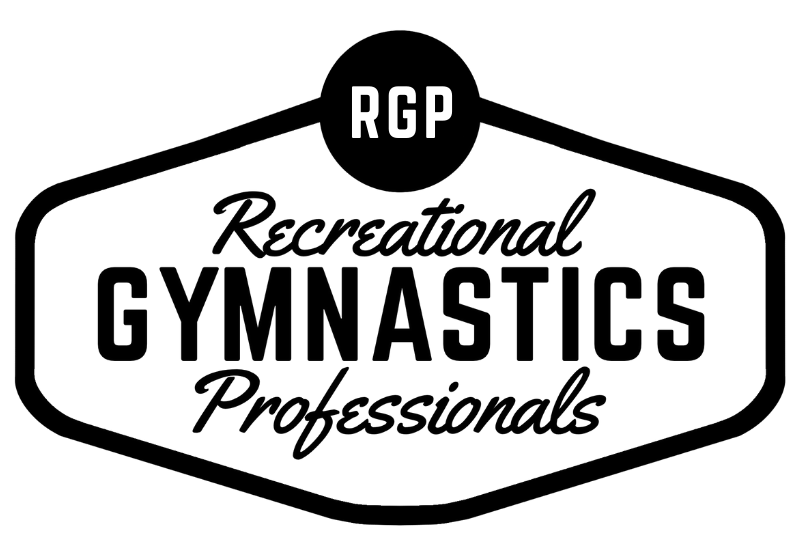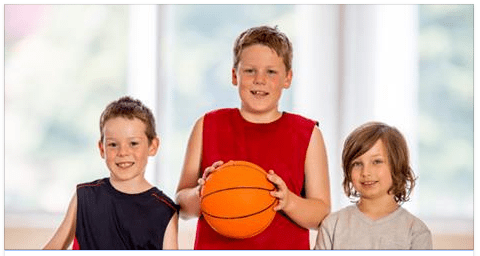“When should I sign my child up for gymnastics?” The quick answer is NOW!
If you have parents asking this question, be sure to check out this post from the GymGab Blog!
WHEN, WHY, HOW: GYMNASTICS FOR KIDS
I’ve had the pleasure of answering the When, the Why and the How of gymnastics for kids, to hundreds of parents. I wear my coaching shirt in public way too often! If we haven’t bumped into each other yet, this post is for you.
WHEN SHOULD KIDS START GYMNASTICS?
If you wanted a one word response it’d be – NOW!
Most Gyms offer Parent-Tot classes, starting as young as 12 months old. Is this necessary? Of course not. Is this a great opportunity for you and your little one to explore the active world of walking, crawling, jumping, rolling, hopping, climbing, and swinging together? Absolutely. Bonus: it’s a social event for both of you!
Some parents aren’t able (or don’t have the desire) to run around the gym with their tot. If this is the case, 3 year olds are usually able to attend class on their own. Does your child have to start this young to be successful? No! Is it a great activity to prepare for school and provide enjoyment and physical development? Yes! (I’m aware a bit of the WHY is slipping in here – it’s hard to resist).
Some kids don’t get the opportunity to try gymnastics until later in life. Is it still worth trying? Definitely! Many gyms offer gymnastics and tumbling classes that are exclusively designed for teens. If you’re really lucky, you’ll find a gym with an adult class!
I’ve had parents ask if their child needed to know how to do a forward roll, be potty trained or follow directions before starting gymnastics. Nope. The forward roll will be taught, try a Parent-Tot class if your little one is yet to be diaper-free, and learning to follow directions is part of the gymnastics experience! If your child is disruptive, you may be asked to tag along . . . stick with it, and find a coach that has great class management skills.
WHY SHOULD KIDS DO GYMNASTICS?
If I had your attention for the next several hours, I’d give you a thorough answer. I’m betting I’ve got quite a bit less time, so I’ll keep it short(er).
Social Skills: peer interaction, taking turns, watching, listening, team work.
Cognitive Skills: focus, memorization, problem solving, following instructions.
Confidence: achievement, overcoming fear, goal-setting, work-ethic, commitment.
Physical Development: strength, flexibility, coordination, speed, balance, endurance.
Fun: games, music, swinging, flipping, twisting, flying!Real life examples:
Kasey was an active two-year old who scared her mom by climbing on counters, dressers, and the refrigerator! The pediatrician recommended gymnastics. Kasey found a safe outlet for her monkey-like talent and fell in the love with the sport. Ten years later, Kasey moved onto other activities. She excelled in dance, diving, and cheer. Gymnastics gave Kasey a foundation for these sports, but most importantly a foundation for life. Her love and appreciation for what the sport provided her drives Kasey to be a gymnastics coach one day.
Lauren was diagnosed with Rheumatoid Arthritis. The doctor recommended gymnastics (different doctor, different state). Although movement of the joints was not easy for Lauren, gymnastics encouraged mobility. Lauren learned to trust her body and her body learned to bend. Gymnastics offered a fun and encouraging atmosphere for physical therapy.
Makenzie was timid. She didn’t like leaving her mom. She didn’t like walking on the beam. She didn’t like going upside-down. A couple of years passed, and Makenzie’s mom continued to bring her to gymnastics. Today, Makenzie loves walking on the high beam. She loves showing off her bridge kick-over. Makenzie loves gymnastics and her mom loves the confidence it’s given Makenzie.
Photo | Chelsea Searle Photography
HOW CAN YOU GET INVOLVED?
Locate your local gyms: USA-Gymnastics provides a quick way to find gymnastics programs in your area. All clubs listed have signed a Standard of Care agreement. Click here to enter your zip code.
Compare your local gyms: After you have found the gyms that are within a comfortable commute, compare! If you have multiple options in your area, walk into them all. Observation is key. If you’re interested in the competitive program, watch a team workout. Talk to the director or parents in the stands. If you want a recreational approach, observe a class your child will be attending. Ask about extra programs and activities that may be offered. Decide which gym “feels right”.
Sign-up: Although many gyms offer a free trial class, this is not an adequate amount of time to evaluate if your child likes gymnastics. I suggest committing to at least one month. If your child is struggling, talk to the coach or try a different class.



